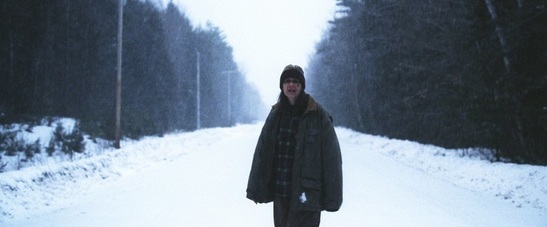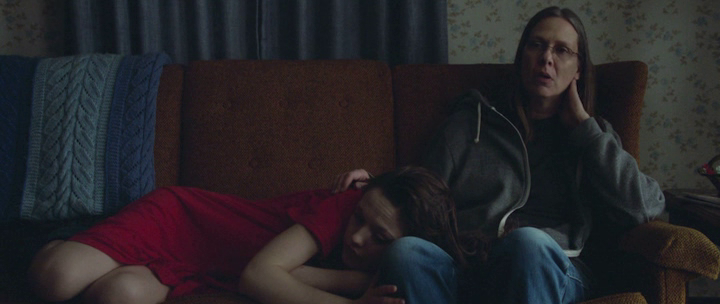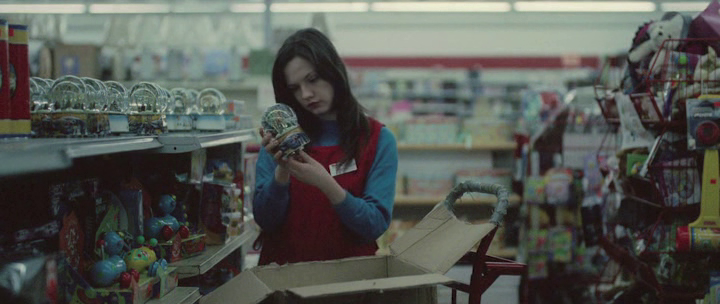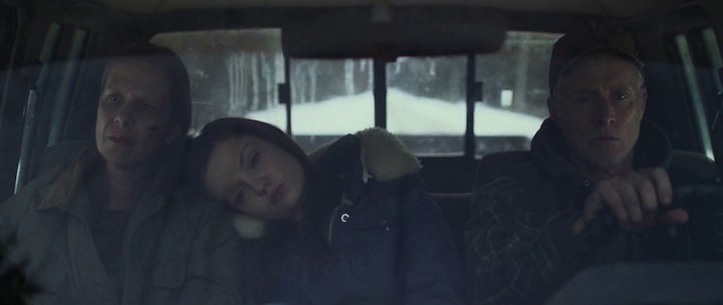 Taking place in the frozen northern region of Maine, Lance Edmand's Bluebird is a gloomy, and downbeat study of loss, grief, and economic deterioration, telling the tale of one woman's tragic mistake that leads to the death of a young boy. Interweaving the connected lives of individuals in this small isolated logging town, Bluebird captures the deteriorating effect of guilt not only on the individual, but the collective, as it spreads throughout the community. Bluebird is a film that captures how fragile the tranquility of a small community can be, displaying the trickle down effect of sorrow that can persist in a town that is crumbling economically. There is a quietness and coldness to Lance Edmand's Bluebird, which uses evocative photography to create its poetic meditation on human struggle, and eventually hope. I particularly liked how the cinematography frequently uses back-lighting in its compositions, presenting many of its characters in a silhouette form, almost in an attempt to strip them of the individuality visually, a faceless individual and visual representation of the universal concept of human struggle. Bluebird is a well-made film that speaks to a lot of universal truths about sorrow and grief, but the film does feel a little too familiar at times, not having much new to say from a film like, Atom Egoyan's The Sweet Hereafter, for example. The one distinction that does make Bluebird well-worth a watch pertains to economic deterioration, with Bluebird capturing how much our lives and happiness are dictated by monetary freedom, with the weight of the town's collapsing economic infrastructure leading to more sorrow.
0 Comments
Leave a Reply. |
AuthorLove of all things cinema brought me here. Archives
June 2023
|



 RSS Feed
RSS Feed
